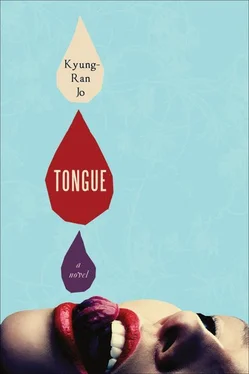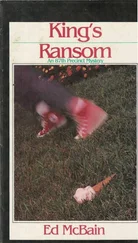Like all other things about Nove that have remained constant in my four years of absence, Chef’s practice of coming up with a new menu twice a year is still the same. Chef sends two cooks to Italy twice a year, in January and July. It’s up to them whether they want to travel together in one region to visit restaurants or choose different regions and travel separately. You’re supposed to travel around Italy for fifteen days, eating and drinking and eating and drinking some more. Nove picks up the tab, and your sole responsibility is to report on the most memorable dish you encountered, the dish you want to recommend for the new menu. Nove creates the new menu based on those reports. It depends on the person, but once in a while someone brings back the recipe itself, or maybe has learned how to make the dish in the kitchen of that particular restaurant. Most cooks rely on their taste buds to guess which ingredients were used, especially because famous restaurants rarely reveal their recipes. Sure, writing the report was difficult, but it wasn’t every day that you got the chance to choose a region to travel through and focus only on eating and drinking and sleeping, for fifteen straight days. Maybe because of opportunities like that, Nove boasts a high retention rate among the staff.
In the six years I worked at Nove, I got to go to Italy five times. I learned how to pair foie gras with baked apple in Tuscany, how to make gelato in Bologna, and assembled pizza margherita in Napoli, working ten days for no pay in the kitchen of the most famous of pizzerias in a city renowned for its pizza—the establishment sold four thousand sheets of pizza margherita a day. There’s no better place than Italy to think only of food and to eat three meals a day and drink and sleep. In Italy, if something isn’t in my mouth, I’m hungry. And I brought back something else from Italy, not just food.
After all the guests go home, the staff that had gone on the food trip and those who contributed ideas stay behind with Chef, making, eating, judging food late into the night. Anyone who’s worked in a kitchen for eleven hours a day would know that food, no matter how delectable, can’t always be delicious. But February is a special month. Every day, I get to work by ten in the morning and stay until after midnight, cooking, eating, drinking. If I were to categorize it, the food I eat now isn’t the food of solidarity, isn’t a peace offering—it’s closer to the food of discord that causes my mouth to shut down. Even if Mun-ju didn’t voice her concerns about my being too skinny, I do need to gain weight and I don’t ever want to be the kind of cook who doesn’t eat. As the restaurant gears up to create dishes for the new menu, I start concentrating on eating. Even when the others just taste the new dishes, I finish an entire plate of it, whatever it may be. No matter how sensitive your tongue is, sampling one bite and judging it is akin to seeing someone once and talking about him as if you know everything about him.
Rejection of food: This was the first hurdle I encountered after parting with him. Refusing food is basically a refusal of relationships, and if it gets worse it can turn into a frightening illness, leading to a complete destruction of all human contact. I eat all day until it exhausts me, like Mun-ju used to ten years ago. But the thing that drains me most is not the act of eating but the smells. It isn’t the stern and picky Chef that reigns over the small kitchen, but the pervasive smell of food. One is taken prisoner by it.
My problems with Paulie start with smell, too.
When I moved out of Grandmother’s house, I didn’t realize that I would one day have a dog. The first time I went to his house, I saw a large, flat, shiny brown mound in the middle of the yard, bathed in sunlight. His name is Paulie, he said to me, as if introducing himself. It was the first time I’d met someone who uttered a dog’s name so lovingly, making me think that if I were asked why I fell in love with him, I’d say it was because of the way he called, Paulie! Blood rushed to my head, just as it does when you take a sip of sweet, hot liquor, as I wondered how he would call my name if he called his dog like that. I joked that the dog was so big that I thought he was a bear, even though he was hunched on the ground. He let out a loud laugh and said, Hey, Paulie, say hello. Surprisingly, the big dog got up, ambled over, stopped in front of me, and silently and gently pushed his smooth square nose into my knee. Paulie’s nudge later became “Are you okay?” in our secret language.
Now it’s just Paulie and me, left behind. I didn’t believe we would have any problems, though I didn’t have all the time in the world to think about this. It would be hard for Paulie to understand that, at times, I don’t remember to eat, or that I want to be holed up at home. Just as I forgot that Paulie needs his daily walk and that his teeth-baring bark isn’t a threat but a sign of submission. I didn’t remember that Paulie couldn’t be left at home all day, all alone, since he’s such a loyal animal, one who has a hard time whiling away the hours without his owner.
In mid-February, when I start coming home late every night, the house is a complete wreck, Paulie having messed up the books, cushions, clothing. And no matter how close you’ve grown emotionally, scent is the one thing that humans and dogs disagree about. Paulie and I like entirely opposite scents. Paulie hates the perfume I spritz on, while I can’t stand the smell of the urine and feces Paulie deposits on the cushions and carpet. Paulie had been well trained since birth, but after his cherished owner left, he has started going to the bathroom in the house, wherever he wants to. I understand this, of course, since Paulie seems to understand why I sleep so much or why I accidentally pour orange juice instead of water into his bowl. It isn’t easy to come home late and clean a house purposely ripped apart by the dog, but it’s the smell that’s intolerable, the smell of his urine and feces that wafts insistently like rotting eggs from this or that corner. Nothing works. Paulie keeps doing it.
Even if they’re of the same breed, dogs are all individuals, like people, and certain dogs have peculiar characteristics. On my way home, I think that I should hurry back so I can take Paulie for a walk, but once I arrive I head toward the bathroom to wash my hair, saturated down to my scalp with the smells of the kitchen, and after the shower all I want to do is fall dead asleep. No matter how much I eat, my body is forever tired. I think spring is coming, I whisper, lying on the sofa and carelessly brushing Paulie’s neck with my hand. Paulie shudders suddenly and raises his head, and I smell something. I sniff, flaring my nostrils. What did you do, Paulie? Paulie shakes his head, all the hair on his body fanning out. I remove the hand tangled deep in Paulie’s fur and sniff it. It’s a smell I know well. That smell is slowly diffusing in the air. I push my hand back into Paulie’s coat and Paulie crouches back down again, acquiescing.
The stench of greenish mold blooming on the surface of blue cheese, the whiff from the hunk of aging lamb hanging from the ceiling, the old, stuffy, sour smell wafting from the underarms of a sweat-soaked shirt—amid all these scents, a refreshingly oceanlike scent, as fresh as a winter herring. A lively, visceral scent. The scent of a man—his scent.
Dogs remember us by the footprints we leave on the ground, from the smell of the hand that strokes their backs. This… this is the scent we both like.
Paulie shakes his head. I close my eyes. His smell may still be lingering somewhere on this sofa, too. A tiny number of minute particles. Now this scent is evaporating slowly from the house and from Paulie’s fur. But it’s not just his scent I’m remembering right now. Right, Paulie?
Читать дальше












